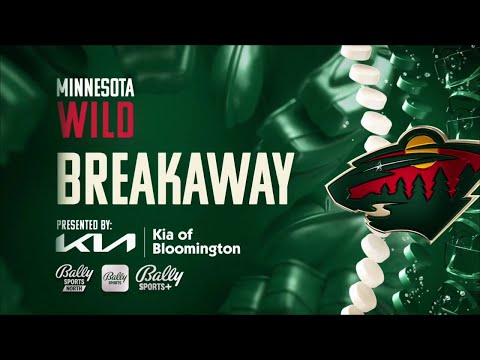Why Are Competitive Sports Bad for Kids?
Contents
Many parents encourage their kids to participate in competitive sports, but there are some drawbacks. Here’s why competitive sports may not be the best for kids.
Checkout this video:
Introduction
Though many young people participate in competitive sports, there is a growing body of research that suggests that competitive sports may be bad for kids. Studies have shown that competitive sports can lead to physical injuries, emotional distress, and even long-term health problems.
One of the most well-known dangers of competitive sports is the risk of physical injury. According to the National Children’s Hospital Sports Medicine Center, more than 3.5 million children aged 14 and under receive medical treatment for injuries related to sports each year. Common injuries include sprains, fractures, concussions, and dislocations. While some of these injuries are minor and can be treated at home, others can be serious enough to require hospitalization.
In addition to the risk of physical injury, competitive sports can also lead to emotional distress. Studies have shown that young athletes who are constantly under pressure to win may experience anxiety, depression, and other mental health problems. This is especially true for kids who are not successful in their chosen sport. For many young athletes, the fear of failure can be overwhelming and may lead them to quit altogether.
Long-term health problems are another potential downside of competitive sports. Research has shown that young athletes who participate in high-pressure sports may be more likely to develop eating disorders, substance abuse problems, and other health issues later in life. They may also be at increased risk for heart disease and other chronic conditions.
Though participation in competitive sports has some potential risks, it’s important to keep in mind that not all kids will experience negative effects. Some will actually benefit from the challenge and camaraderie that comes with playing on a team. If you’re considering signing your child up for a competitive sport, it’s important to weigh the pros and cons carefully before making a decision.
The Negative Effects of Competitive Sports on Kids
Kids who participate in competitive sports often have to sacrifice their free time, which can lead to less time spent with family and friends. They also may miss out on important events, such as birthdays and holidays. Furthermore, competitive sports can put a lot of pressure on kids and may lead to anxiety and depression.
The Pressure to Win
The Pressure to Win – One of the biggest problems with competitive sports is the pressure that children feel to win. When kids are constantly being compared to other children in their league, it can take the fun out of the game. Kids who don’t feel like they are good enough or who lose often can start to dread playing.
The focus on winning can also lead to some unsportsmanlike behavior. Cheating, trash talking, and poor sportsmanship are all too common when kids are trying to win at all costs.
The Fear of Losing
Competitiveness in sports can often bring out the fear of losing in children. This fear can be so overwhelming that it actually impedes children’s performance in sporting events. When children are afraid of losing, they tend to play more cautiously, which can lead to poorer results. In some cases, the fear of losing can even cause children to forfeit the game entirely.
The Risk of Injury
While playing any sport comes with some risk of injury, the risk is much higher in competitive sports. Studies have shown that up to half of all children who play competitive sports will suffer some kind of injury each year.
Most injuries are minor, such as scrapes and bruises, but some can be more serious, like concussions or broken bones. These more serious injuries can have long-lasting effects on kids’ health and well-being.
In addition to the risk of physical injury, competitive sports can also lead to emotional and mental health problems. Studies have shown that kids who play competitive sports are more likely to suffer from anxiety, depression, and other mental health disorders.
The Positive Effects of Competitive Sports on Kids
The benefits of physical activity
It’s no secret that competitive sports can bring out the best in kids. They can teach teamwork, discipline, and perseverance. But did you know that there are many other positive effects of competitive sports on kids?
Here are just a few:
Physical activity is good for kids’ overall health. It helps them maintain a healthy weight, strengthens their bones and muscles, and lowers their risk for chronic diseases such as heart disease, type 2 diabetes, and certain types of cancer.
Competitive sports can help kids learn how to set and achieve goals. This can be useful in all areas of their lives, from school to relationships to careers.
Playing sports can help kids develop social skills. They learn how to cooperate with others, resolve conflict, and deal with victory and defeat. These skills are essential in all aspects of life.
Competitive sports can teach kids perseverance and grit. They learn that they need to keep trying even when they’re facing obstacles or setbacks. This is an important lesson that will serve them well throughout their lives.
The opportunity to learn new skills
Competitive sports offer opportunities for kids to learn new skills. They can learn how to control their emotions, how to work hard and how to be a good team player. They can also learn how to deal with disappointment and how to manage their time. All of these skills will be beneficial to them later in life.
In addition, kids who participate in competitive sports tend to have higher self-esteem and are more confident. They feel good about themselves and their abilities. This increased self-confidence can lead to success in other areas of their lives.
The opportunity to socialize and make new friends is one of the most important benefits of competitive sports for kids. Participating in team sports can help kids develop social skills and learn how to work well with others. In addition, playing sports can help kids make friends outside of their normal social groups.
Another important benefit of competitive sports is that it can help kids develop a sense of achievement and success. Participating in sports can help kids feel good about themselves and their abilities. In addition, winning can provide a sense of accomplishment and pride.
Competitive sports can also teach kids important life lessons, such as how to set goals, persevere through adversity, and manage success and failure. These are skills that will be valuable to them throughout their lives.
Overall, the positive effects of competitive sports on kids far outweigh the potential negatives. Competitive sports can provide numerous benefits to children, including the chance to socialize, make new friends, develop a sense of achievement, and learn important life lessons.
Conclusion
In conclusion, while there are some benefits to youth competitive sports, the negatives seem to outweigh the positives. Kids who participate in competitive sports often do so at the expense of their academic and social lives, and the pressure to win can lead to serious physical and emotional injuries. If you decide to allow your child to participate in competitive sports, be sure to closely monitor their progress and be sure that they are still enjoying the experience.






